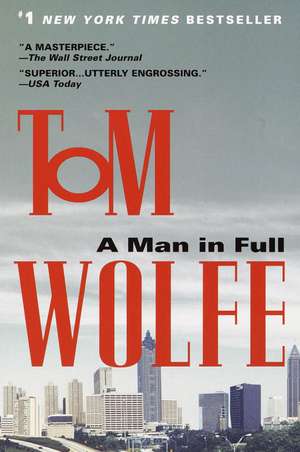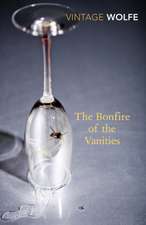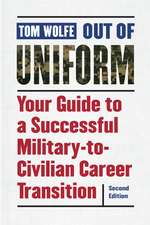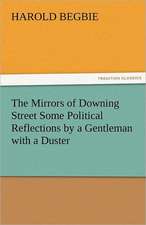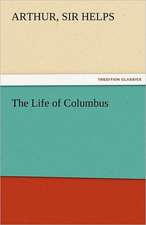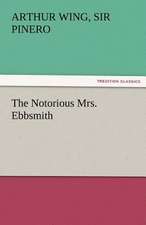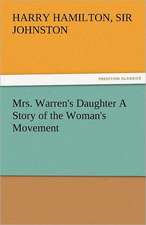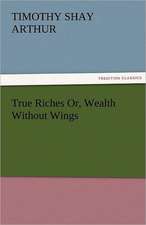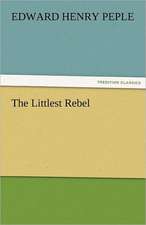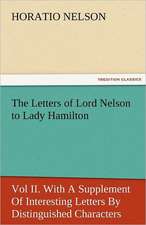A Man in Full
Autor Tom Wolfeen Limba Engleză Paperback – 30 sep 2001
Vezi toate premiile Carte premiată
National Book Awards (1998)
Meanwhile, Conrad Hensley, idealistic young father of two, is laid off from his job at the Croker Global Foods warehouse near Oakland and finds himself spiraling into the lower depths of the American legal system.
And back in Atlanta, when star Georgia Tech running back Fareek “the Canon” Fanon, a homegrown product of the city’s slums, is accused of date-raping the daughter of a pillar of the white establishment, upscale black lawyer Roger White II is asked to represent Fanon and help keep the city’s delicate racial balance from blowing sky-high.
Networks of illegal Asian immigrants crisscrossing the continent, daily life behind bars, shady real estate syndicates — Wolfe shows us contemporary America with all the verve, wit, and insight that have made him our most admired novelist. Charlie Croker’s deliverance from his tribulations provides an unforgettable denouement to the most widely awaited, hilarious and telling novel America has seen in ages — Tom Wolfe’s most outstanding achievement to date.
| Toate formatele și edițiile | Preț | Express |
|---|---|---|
| Paperback (2) | 74.54 lei 26-32 zile | +33.87 lei 10-14 zile |
| Random House – sep 2011 | 74.54 lei 26-32 zile | +33.87 lei 10-14 zile |
| Dial Press – 30 sep 2001 | 100.23 lei 3-5 săpt. | +21.55 lei 10-14 zile |
| Hardback (1) | 259.31 lei 6-8 săpt. | |
| Farrar, Strauss & Giroux-3pl – 31 oct 1998 | 259.31 lei 6-8 săpt. |
Preț: 100.23 lei
Nou
Puncte Express: 150
Preț estimativ în valută:
19.18€ • 20.08$ • 15.87£
19.18€ • 20.08$ • 15.87£
Carte disponibilă
Livrare economică 15-29 martie
Livrare express 04-08 martie pentru 31.54 lei
Preluare comenzi: 021 569.72.76
Specificații
ISBN-13: 9780553381337
ISBN-10: 0553381334
Pagini: 704
Dimensiuni: 135 x 209 x 33 mm
Greutate: 0.52 kg
Editura: Dial Press
ISBN-10: 0553381334
Pagini: 704
Dimensiuni: 135 x 209 x 33 mm
Greutate: 0.52 kg
Editura: Dial Press
Recenzii
#1 New York Times bestseller
“A masterpiece.”
— The Wall Street Journal
“Superior ... utterly engrossing.”
— USA Today
“The novel contains passages as powerful and as beautiful as anything written — not merely by contemporary American novelists but by any American novelist.... The book is as funny as anything Wolfe has ever written; at the same time it is also deeply, strangely affecting.”
— The New York Times Book Review
“Wolfe is a peerless observer, a fearless satirist, a genius in full.”
— People
Also by Tom Wolfe:
The Bonfire of the Vanities
The Electric Kool-Aid Acid Test
From Bauhaus to Our House
The Kandy-Kolored Tangerine-Flake Streamline Baby
The Painted Word
The Right Stuff
Mauve Gloves & Madmen
Clutter & Vine
In Our Time
The Pumphouse Gang
Radical Chic & Mau-Mauing the Flak Catchers
Available wherever Bantam Books are sold
“A masterpiece.”
— The Wall Street Journal
“Superior ... utterly engrossing.”
— USA Today
“The novel contains passages as powerful and as beautiful as anything written — not merely by contemporary American novelists but by any American novelist.... The book is as funny as anything Wolfe has ever written; at the same time it is also deeply, strangely affecting.”
— The New York Times Book Review
“Wolfe is a peerless observer, a fearless satirist, a genius in full.”
— People
Also by Tom Wolfe:
The Bonfire of the Vanities
The Electric Kool-Aid Acid Test
From Bauhaus to Our House
The Kandy-Kolored Tangerine-Flake Streamline Baby
The Painted Word
The Right Stuff
Mauve Gloves & Madmen
Clutter & Vine
In Our Time
The Pumphouse Gang
Radical Chic & Mau-Mauing the Flak Catchers
Available wherever Bantam Books are sold
Notă biografică
Tom Wolfe is the author of a dozen books, among them such contemporary classics as The Electric Kool-Aid Acid Test, The Right Stuff, and The Bonfire of the Vanities. A native of Richmond, Virginia, he earned his B.A. at Washington and Lee University and a Ph.D. in American studies at Yale. He lives in New York City.
Extras
Chocolate Mecca
For a while the Freaknic traffic inched up Piedmont ... inched up Piedmont ... inched up Piedmont ... inched up as far as Tenth Street ... and then inched up the slope beyond Tenth Street ... inched up as far as Fifteenth Street ... whereupon it came to a complete, utter, hopeless, bogged-down glue-trap halt, both ways, northbound, southbound, going and coming, across all four lanes. That was it. Nobody was moving on Piedmont Avenue; not anywhere, not any which way; not from here; not for now. Suddenly, as if they were pilots ejecting from fighter planes, black boys and girls began popping out into the dusk of an Atlanta Saturday night. They popped out of convertibles, muscle cars, Jeeps, Explorers, out of vans, out of evil-looking little econo-sports coupes, out of pickup trucks, campers, hatchbacks, Nissan Maximas, Honda Accords, BMWs, and even ordinary American sedans.
Roger Too White — and in that moment this old nickname of his, Roger Too White, which he had been stuck with ever since Morehouse, came bubbling up, uninvited, into his own brain — Roger Too White stared through the windshield of his Lexus, astonished. Out the passenger-side window of a screaming-red Chevrolet Camaro just ahead of him, in the lane to his left, shot one leg of a pair of fiercely pre-faded blue jeans. A girl. He could tell it was a girl because of the little caramel-colored foot that protruded from the jeans, shod only in the merest of sandals. Then, much faster than it would take to tell it, out the window came her hip, her little bottom, her bare midriff, her tube top, her wide shoulders, her long wavy black hair with its heavenly auburn sheen. Youth! She hadn’t even bothered to open the door. She had come rolling out of the Camaro like a high jumper rolling over the bar at a track meet.
As soon as both feet touched the pavement of Piedmont Avenue, she started dancing, thrusting her elbows out in front of her and thrashing them about, shaking those lovely little hips, those tube-topped breasts, those shoulders, that heavenly hair.
RAM YO’ BOOTY! RAM YO’ BOOTY!
A rap song was pounding out of the Camaro with such astounding volume, Roger Too White could hear every single vulgar intonation of it even with the Lexus’s windows rolled up.
HOW’M I SPOSE A LOVE HER,
CATCH HER MACKIN’ WITH THE BROTHERS?
— sang, or chanted, or recited, or whatever you were supposed to call it, the guttural voice of a rap artist named Doctor Rammer Doc Doc, if it wasn’t utterly ridiculous to call him an artist.
RAM YO’ BOOTY! RAM YO’ BOOTY!
— sang the chorus, which sounded like a group of sex-crazed crack fiends. It took a Roger Too White to imagine that sex-crazed crack fiends could get together and cooperate long enough to sing a chorus, although he did correctly identify Doctor Rammer Doc Doc, who was so popular that even a forty-two-year-old lawyer like himself couldn’t completely shut him out of his waking life. His own tastes ran to Mahler and Stravinsky, and he would have gladly majored in music history at Morehouse, except that music history hadn’t been considered too great a major for a black undergraduate who wanted to get into the University of Georgia law school. All of that, compressed into a millisecond, blipped through his mind in this moment, too.
The girl swung her hips in an exaggerated arc each time the fiends hit the BOO of BOOTY. She was gorgeous. Her jeans were down so low on her hips, and her tube top was up so high on her chest, he could see lots of her lovely light-caramel-colored flesh, punctuated by her belly button, which looked like an eager little eye. Her skin was the same light color as his, and he knew her type at a glance. Despite her funky clothes, she was a blueblood. She had Black Deb written all over her. Her parents were no doubt the classic Black Professional Couple of the 1990s, in Charlotte or Raleigh or Washington or Baltimore. Look at the gold bangles on her wrists; must have cost hundreds of dollars. Look at the soft waves in her relaxed hair, a ‘do known as a Bout en Train; French, baby, for “life of the party” cost a fortune; his own wife had the same thing done to her hair. Little cutie, shaking her booty, probably went to Howard or maybe Chapel Hill or the University of Virginia; belonged to Theta Psi. Oh, these black boys and girls came to Atlanta from colleges all over the place for Freaknic every April, at spring break, thousands of them, and here they were on Piedmont Avenue, in the heart of the northern third of Atlanta, the white third, flooding the streets, the parks, the malls, taking over Midtown and Downtown and the commercial strips of Buckhead, tying up traffic, even on Highways 75 and 85, baying at the moon, which turns chocolate during Freaknic, freaking out White Atlanta, scaring them indoors, where they cower for three days, giving them a snootful of the future. To these black college students shaking it in front of his Lexus, this was nothing more than what white college students had been doing for years at Fort Lauderdale and Daytona and Cancún, or wherever they were going now, except that these boys and girls here in front of him weren’t interested in any beach. They were coming to the ... streets of Atlanta. Atlanta was their city, the Black Beacon, as the Mayor called it, 70 percent black. The Mayor was black — in fact, Roger and the Mayor, Wesley Dobbs Jordan, had been fraternity brothers (Omega Zeta Zeta) at Morehouse — and twelve of the nineteen city council members were black, and the chief of police was black, and the fire chief was black, and practically the whole civil service was black, and the Power was black, and White Atlanta was screaming its head off about “Freaknik,” with a k instead of a c, as the white newspapers called it, ignorant of the fact that Freaknic was a variation not of the (white) word beatnik but of the (neutral) word picnic. They were screaming that these black Freaknik revelers were rude, loud, rowdy, and insolent, that they got filthy drunk and littered the streets and urinated on (white) people’s lawns, that they tied up the streets and the malls and cost the (white) merchants millions of dollars, even that they made so much noise they were disrupting the fragile mating habits of the rhinoceroses at the Grant Park zoo. The mating habits of the rhinos!
In other words, these black boys and girls had the audacity to do exactly what white boys and girls did every year during their spring breaks. Oh yes, and White Atlanta was screaming everything they could think of, except for what they really thought, which was: They’re everywhere, they’re in our part of town, and they’re doing what they damn well please — and we can’t stop them!
Out of the other side of the Camaro popped the driver, a great lubberly lad. A snub-tailed Eclipse was practically touching his rear bumper. He put one hand on the airfoil lip on the trunk of the Camaro and — youth! — vaulted between the two cars and landed right in front of the girl. And no sooner had his feet touched the pavement of Piedmont Avenue than he was dancing.
RAM YO’ BOOTY! RAM YO’ BOOTY!
He was a tall fellow, slightly darker than she was, but not much. He could still pass the Brown Paper Bag Test, as they used to call it here in the Black Beacon, which meant that so long as your skin was no darker than a brown paper bag from the grocery store, you were eligible for Black Society and black debs. He had on a baseball cap, backward. He had one gold earring, like a pirate’s. He had on an orange T-shirt so big the short sleeves came down to his elbows and the neck opening revealed his clavicle; the tail came down below his hips, so that you could barely see his baggy cut-off jeans, whose crotch hung down to his knees. On his feet he wore a pair of huge black sneakers known as Frankensteins, with rubbery white tongue-like shapes lapping up the sides from the soles. Homey; that was the look. Ghetto Boy; but Roger Too White, who was wearing a chalk-striped gray worsted suit, a blue-and-white-striped shirt with a white collar crisp with stays, and a navy silk tie, wasn’t buying this ghetto rags getup: the boy was big, but he was fat and happy. He didn’t have those hard muscles and thong-like tendons and that wary look through the eyes of the ghetto boy — and he did have a Chevrolet Camaro that must have set his daddy back close to $20,000. No, this was probably the son of somebody who had inherited the oldest black bank or insurance company in Memphis or Birmingham or Richmond or — Roger Too White checked out the license plate: Kentucky — okay, in Louisville — from his daddy. Our Louisville company chairman-in-embryo, now a college boy, has come to Atlanta for three days for Freaknic, to raise hell and feel like a true blood and righteous brother.
Roger Too White looked up ahead and to his left and behind him, and everywhere he looked there were happy, frolicsome black boys and girls like this pair, out on the pavement of Piedmont Avenue, dancing between the cars, shouting to each other, throwing away beer cans that went ping! ping! ping! on the roadway, shaking their young booties, right at the entrance to a white enclave, Ansley Park, and baying at that chocolate moon. The very air of Saturday-night Atlanta was choked with the hip-hopped-up mojo of rap music booming from a thousand car stereos —
RAM YO’ BOOTY!
— and then he took a look at his watch. Oh shit! It was 7:05, and he had to be at an address on Habersham Road in Buckhead, some street he had never laid eyes on, by 7:30. He had allowed himself plenty of time, because he knew Freaknic was in progress and the traffic would be terrible, but now he was trapped in the middle of an impromptu block party on Piedmont Avenue. He felt panicky. He could never say this out loud to a living soul, not even to his wife, but he couldn’t stand the thought of being late for appointments — especially where important white people were concerned. And this was the Georgia Tech football coach, Buck McNutter, an Atlanta celebrity, a man he didn’t even know, who had summoned him out on a Saturday night, urgently; unwilling to even go into it on the telephone. He couldn’t be late to an appointment with a man like that. Couldn’t! Maybe that was craven of him, but that was the way he was. Once, when he was representing the MoTech Corporation in the Atlanta Pythons stadium negotiations, he was standing around in a conference room up in the Peachtree Center with a bunch of white lawyers and executives, and they were all waiting for Russell Tubbs, whom he knew very well because he, too, was black and a lawyer. Russ was representing the city. One of these big meaty white business types, a real red-faced Cracker, is talking to another one, just as big, red-faced, and slit-eyed, and they’ve got their backs to him. They didn’t know he was there. And one of them says, “When the hell’s this guy Tubbs gonna get here?” And the other one puts on this real Cracker-style imitation of a black accent and says, “Well now, I don’ rightly know de answer to dat. Counselor Tubbs, he operates on C.P.T.” Colored People’s Time. Roger Too White had used that tired old joke himself, with other brothers, but to hear it come out of the mouth of this fatback white bigot — he wanted to strangle him on the spot. But he didn’t strangle him, did he — no, instead he had swallowed it ... whole ... and pledged to himself that he would never — ever! — be late to an appointment, particularly with a prominent white person. And he never had been, from that day to this — and now he was trapped in a Freaknic Saturday-night block party that could go on forever.
Desperate, Roger Too White sought a way out — the sidewalk. He was in the right lane, the lane next to the curb, and maybe he could drive up over the curb and onto the sidewalk and down to Tenth Street and get out that way somehow. The sidewalk was against an embankment topped by a fence with rustic stone pillars that ran up the hill of Piedmont Avenue. The embankment was like a cliff, retaining a stretch of high ground that cropped up between the avenue and Piedmont Park, which was on the other side. Right above the wall you could see a low structure that from this angle looked like a lodge in the mountain resort area of western North Carolina. There was a terrace, and up on that terrace were a bunch of white people in formal clothes. They were peering down at the Freaknic revelers.
RAM YO’ BOOTY! RAM YO’ BOOTY!
From where he was, he could see the white faces of the men and the shoulders of their tuxedos. He could see the white faces of the women and, in many cases, their bare white shoulders and the bodices of their dresses. They were not smiling. They were not happy. Bango! The Piedmont Driving Club! That was what this otherwise unremarkable building was: the Piedmont Driving Club! Now he recognized it! The Driving Club was the very sanctum, the very citadel of the White Atlanta Establishment. He got the picture immediately. These white swells had no doubt planned this big party for this Saturday night ages ago, never dreaming it would coincide with Freaknic. And now their worst white nightmare had come true. They were marooned in the very middle of it. Black Freaknik! On this side, black boys and girls were ejecting from their automobiles and shaking it to Doctor Rammer Doc Doc’s “Ram Yo’ Booty.” On the other side, in Piedmont Park, thousands of black boys and girls were gathering for a concert featuring another rapper, G.G. Good Jookin’. All those white faces up on the Driving Club terrace could look here, and they could look there, and they could see nothing in any direction but a rising tide of exuberant young black people, utterly unfettered and unafraid.
Perfection! The perfect poetic justice was what this black traffic-jam jam session on Piedmont was! The very origin of the Piedmont Driving Club was ... driving vehicles. The club had started up in 1887, just twenty-two years after the Civil War, when the Atlanta elite, which meant the white elite, it went without saying, had begun meeting on the weekends in what was now Piedmont Park to show off their buggies, phaetons, barouches, victorias, and tallyhos with all the custom bodywork and harnesses and tack and the hellishly expensive horses, in order to bask in one another’s conspicuous consumption. So then they had bought themselves a clubhouse, and gradually they had enlarged it, and eventually it became the rambling structure up there on the high ground he was looking at right now. It wasn’t all that long ago that no black man set foot in the place unless he was a cook, a dishwasher, a waiter, a doorman, a maître d’, or an attendant who parked the members’ cars. Lately the Driving Club had seen the handwriting on the wall, and they were looking for some black members. Roger himself had received an overture, if that was what it was, from a jolly lawyer named Buddy Lee Witherspoon. That was an example of just how Too White even white people perceived him to be, wasn’t it! Well, they could just go kiss his — he was damned if he would ever set foot in that place and circulate on that terrace with all those white faces he was now staring up at — not even if they got down on their knees and begged him. Hell, no! He was going to get out of this Lexus sedan and join the party and stand in the street and raise his black fists up toward that terrace and roar out to them: “Look, you want a driving club? You want a driving club that convenes at Piedmont and Fifteenth Street? You want to see the elite meet? Then feast your eyes on this! Take a good look! BMWs, Geos, Neons, Eclipses, sports utilities, Hummers, runabouts, Camrys, and Eldorados, millions of dollars’ worth of cars, in the hands of young black Americans, billions of volts of energy and excitement, with young black America in the driver’s seat and shaking its black booty right in your pale trembling faces! Look at me! Listen to me, because I’m going to—”
But then he lost heart, because he knew he wasn’t going to say that or anything else. He wasn’t even going to get out of the car. Got to be at Coach Buck McNutter’s house in Buckhead in less than twenty-five minutes, and Coach Buck McNutter is very white.
For an instant, as he had many times before, Roger Too White hated himself. Maybe he was too white ... Too White ... His father, Roger Makepeace White, pastor of the Beloved Covenant Church, had named him Roger Ahlstrom White II, out of his intellectual reverence for a religious historian named Sidney Ahlstrom. His father had thought that the II was the proper designation for sons who had the same first name as their fathers but different middle names. So when he was a boy growing up in Vine City and Collier Heights, all his aunts and uncles and cousins had started calling him Roger Two, and then everybody started calling him Roger Two, as if he had a double name like Buddy Lee. Then when he got to Morehouse in the seventies, his fellow students turned that perfectly harmless nickname on him like a skewer through the ribs and started calling him Roger Too White instead of Roger White II. He had come to Morehouse, the crown jewel of the four black colleges that made up the Atlanta University Center, with the misfortune of being deeply influenced in all matters political (and moral and cultural and pertaining to personal conduct, property, dress, and etiquette) by his father, an ardent admirer of Booker T. Washington. Booker T. had made the most important pronouncement of his life right over there in Piedmont Park, his so-called Atlanta Compromise speech of 1895 at the Cotton States Exposition, in which he said black people should seek economic security before political or social equality with whites. Alas, the late seventies were a time when, especially at Morehouse, the number-one elite blueblood black college in America, molder of the much-vaunted Morehouse Man, you had to be for the legacy of the Panthers and CORE and SNCC and the BLA and Rap and Stokely and Huey and Eldridge, or you were out of it. Black Atlanta’s own Martin Luther King had been murdered not even ten years before, and so obviously gradualism and Gandhiism and all that were finished. If you were a proponent of Booker T. Washington, then you were worse than out of it. The way people acted, you might as well have been waving a placard for Lester Maddox or George Wallace or Eugene Talmadge. But damn it all, Booker T. was no Uncle Tom! He never kowtowed to the white man! He didn’t even want integration! He said the white man will never like you! He said he’ll never treat you fair out of the goodness of his heart! He’ll treat you fair only after you’ve made something out of yourself and your career and your community and he’s dying to do business with you! But nobody at Morehouse, and certainly nobody in Omega Zeta Zeta, wanted to even hear about all that. They wanted to hear about confrontations with the White Establishment and gunfights with the cops that brothers had had in the sixties. Booker T. Washington? Roger Too White they started calling him, and he hadn’t been able to shake it in the whole three decades since then.
And maybe they were right ... maybe they were right ... In this very moment, as he looked up through the windshield of his Lexus at the Piedmont Driving Club, in this very moment when he felt the urge to get out of the car and lift his fists to the heavens and announce the new dawn, he was pulled in two directions. Part of him was so proud of these boys and girls all around him on the street, these young brothers and sisters who didn’t hesitate for a second to claim the streets of Atlanta, all the streets, as their own, with just as much Dionysian abandon as any white college students — while another part of him said, “Why can’t you put on a classier show? If you can afford the BMWs and the Camaros and the Geo convertibles and the Hummers” — he could see one of those monsters, a Hummer, four or five cars ahead of him —
He turned his head to take another look at the Deb dancing in the street —
What?
He couldn’t believe it. She was now up on top of the Camaro, dancing as if she were on top of a bar, like the bar of the Sportsman’s Club downtown on Ellis Street. And there wasn’t just her lubberly boyfriend staring up at her, there was a whole mob of boys, college boys, the jeunesse dorée of Black America, all of them wearing their ghetto rags and jumping around like a bunch of maniacs and grinning and shrieking, “Take it off! Take it off! Take it off!”
RAM YO’ BOOTY! RAM YO’ BOOTY!
The Deb, this beautiful, exquisite young woman, was merrily teasing them on, grinding her booty and projecting her breasts, and touching the top of the fly of her jeans with both hands, as if at any moment she was about to unzip them, slip them down off her hips, all with a salacious leer on her lips and a lubricious look in her eyes.
“TAKE IT OFF! TAKE IT OFF! TAKE IT OFF!”
There must have been thirty berserk boys around that Camaro, wild with anticipation. Some were thrusting money up toward her. She looked at them with a grin of concupiscent mockery and continued to grind her hips.
Roger Too White’s heart was pounding, partly because he feared what a terrible turn this exhibition might take — but also — and he felt this immediately, in his very loins — because he had seldom been so aroused by any sight in his life — he didn’t want her to — and yet he did —
— when suddenly Circe, the Deb, the golden tan daughter of some Ideal Black Professional Couple of the 1990s, stretched her right arm straight out, pointing upward — and grinned.
Stunned, astonished, her besotted subjects on the pavement swiveled their heads in that direction, too. Now they were all looking upward, obedient drones of Circe, the great tubby lubberly Louisville company chairman-in-embryo among them. They had all spotted the white people up on the terrace of the Driving Club peering down from the formal eminence of their tuxedos and cocktail dresses. All the boys and girls, the whole street full of them, began laughing and shouting.
RAM YO’ BOOTY! RAM YO’ BOOTY!
Then they all started dancing, all those black boys and girls out in their shiny screaming sea of cars, with the Deb up on top of the Camaro like the Queen of the Rout, all facing in one direction, toward the Piedmont Driving Club, shaking their booties and thrashing their elbows. Did they know that this was the Piedmont Driving Club and what the Piedmont Driving Club was? Not one chance in a thousand, thought Roger Too White. All they saw was a clutch of bewildered white people clad in their evening clothes. The dance in the street became a good-natured mockery. You want to see Freaknic? Then we’ll show it to you! We’ll give you a real eyeful! We’re loose! We’re down! You’re dead! You’re rickety!
GONNA SOCK IT TO MY BABY!
LIKE A ROCKET, DON’T MEAN MAYBE!
— Suddenly a new rap song was pounding from the Camaro —
GIRL, CAN’T KNOCK IT, SAY BE LIMBO!
SHANKS AKIMBO!
HEY! YO! BIMBO! YOU UNLOCK IT!
GONNA TAKE IT OUT MY POCKET!
AN’ THEN I’M GONNA COCK IT IN —
CHOC-OLATE MECCA! UNNHHH!
CHOC-OLATE MECCA! UNNHHH!
CHOC-OLATE MECCA! UNNHHH!
CHOC-OLATE MECCA! UNNHHH!
With each CHOC of CHOCOLATE MECCA the Black Deb on top of the Camaro thrust her hips this way, and with each UNNHHH! she thrust them that way. And now the whole block party was doing the same thing, grinning and laughing at the stricken white people on the terrace.
CHOCOLATE MECCA! UNNHHH!
CHOCOLATE MECCA! UNNHHH!
CHOCOLATE MECCA! UNNHHH!
Suddenly the tubby boy, the company chairman-to-be, stopped dancing, wheeled about, and walked up close to his Camaro, facing the passenger-side door. What was he doing? The Black Deb apparently wondered the same thing, because she stopped dancing, too, and looked down at him. He was so close to the Camaro, you couldn’t see anything but his back, but he seemed to be fumbling with the fly of his cut-off jeans. Roger Too White had a disheartening premonition ... Surely he wouldn’t ... right there in the middle of Piedmont Avenue ... Now the boy reached down under the tail of his long, floppy T-shirt and lifted it as high as his waist and hooked his thumbs over the top of his cut-off jeans and, in a single motion, pulled his jeans and his undershorts down around his knees and leaned over and stuck out his big fat bare bottom.
The Black Deb shrieked and exploded with laughter. Boys and girls all over the street shrieked and exploded with laughter.
Mooning!
Mooning!
He was mooning the very Piedmont Driving Club itself!
Roger Too White, encased in his fancy Lexus and his $2,800 custom-made suit and $125 shirt and crêpe de chine necktie, was appalled. He wanted to cry out: “Brothers! Sisters! Is this why you’ve become the jeunesse dorée of Black America? Is this why we’ve finally scaled the heights educationally and professionally? Is this why your parents struggled to accumulate the capital to give you those cars you’re cruising around Atlanta in tonight? Is this why they made sure your generation went to college? So you brothers could act like this? Wearing ghetto rags and snorting and squealing like rutboars and turning that beautiful sister into a common Ellis Street hootchy and throwing money at her? And you sisters — why would you do something like this? You veritable flowers of black womanhood — why would you let the brothers turn you into the very same stereotypes that the hip-hop videos make you out to be? Why don’t you say no to such sexist disrespect? Why don’t you insist, as you should, as you easily could, upon the love, affection, and genuine respect you deserve? Brothers, Sisters, listen to me—”
At the same time another feeling entirely was sweeping through his loins. Deep inside he was ... exhilarated. The freedom of these young brothers and sisters, the abandon, the Dionysian fearlessness on the very threshold of the Piedmont Driving Club—
Oh my God, oh my God—
Oh, Chocolate Mecca!
Miraculously, the traffic started moving again, and the girls and boys popped back into their cars as fast as they had ejected from them, and the Freaknic traffic began inching up Piedmont Avenue once more. Not a moment too soon, either. The Black Deb had managed to take advantage of the brief interlude of mocking the stuffed white shirts on the terrace of the Driving Club to scramble back down into the Camaro, alongside her fat moon-happy friend, and now the traffic was moving again, and it was all over.
Roger Too White’s heart was still pounding, from a fear of what the scene might have turned into — and from a sexual stimulation that made him wonder all over again about his proper forty-two-year-old self — but he managed to keep his wits about him long enough to peel off from Piedmont Avenue at Morningside Drive.
He sped over to Lenox Road and then headed north and made a big loop around the Lenox Square area, which he knew would be clogged with Freaknickers. By driving much too fast, he managed to get over to Habersham Road, near West Paces Ferry, only eleven minutes late.
Aw, man ... Habersham Road ... It was dusk, but it was still light enough to see what Habersham Road was ... Georgia Tech was treating Coach Buck McNutter like a king. The Stingers Club, the new group of alumni football boosters, had raised enough money to top off the university’s regular football coach’s pay enough, and guarantee the great McNutter $875,000 a year, thereby wooing him away from the University of Alabama. As a bonus on a bonus, they guaranteed him a house in Buckhead, gratis. Not only that, Habersham Road was obviously in the very best part of Buckhead. The lawns rose up from the street like big green breasts, and at the top of each breast was a house big enough to be called a mansion ... Trees everywhere ... reaching up so high it was obvious they were virgin timber ... boxwood bushes so big and dense and well clipped, you could hear all those gardeners snickersnacking away just by looking at them ... and, above all, the dogwood. It was a late spring, for Georgia, and the dogwood had just burst out in all their glory. Here in the gloaming, the white blossoms, arranged in their distinctive planes, swept from green breast to green breast, from mansion to mansion, estate to estate, as if some divine artist had adorned the heavenly air itself with them to show that the residents of Buckhead, off West Paces Ferry Road, were the elect, the anointed, the rightful white hard grabbers of whatever Atlanta, Georgia, had to offer. In Cascade Heights and at Niskey Lake, where Roger Too White lived, way down in Southwest Atlanta, he and a lot of other successful black people, the lawyers, the bankers, the insurance company executives, had big houses — some with white columns — and big lawns and, for that matter, dogwood. But it just wasn’t the same. Niskey Lake didn’t have those big green breasts, and the dogwood blossoms didn’t seem to exist in such divine clouds...
Roger Too White drove his Lexus up a driveway that ascended the lush swell of the lawn McNutter. As seen through the planes of dogwood blossoms, the house appeared to have been done in the French Maison Lafitte style, with lofty casement windows from which came a soft, mellow light, upstairs and down. At the top of the hill, the driveway made a showy loop, bordered with liriope, in front of the house. Roger Too White parked near the front door. As he walked toward it, he remembered all the stories he had heard of the black men who had been hassled and detained by not only the police but also the Buckhead private security patrols ... just for being black and setting foot on this hallowed earth near the holy white corridor of West Paces Ferry Road.
The doorbell was answered by Coach Buck McNutter himself. Oh, there was no mistake about that. Roger Too White had never met the man before, but he knew that face. He had seen it God knew how many times on television and in the pages of The Atlanta Journal-Constitution. It was the real loose-sausage-eating, brown-liquor-drinking Southern face of a white athlete turned forty and covered with a smooth well-fed layer of flesh. His neck, which seemed a foot wide, rose up out of a yellow polo shirt and a blue blazer as if it were unit-welded to his trapezius muscles and his shoulders. He was like a single solid slab of meat clear up to his hair, which was a head of hair and a half, a strange silvery blond color, coiffed with bouncy fullness and little flips that screamed $65 male hairdo. Not a single cilium was out of place. Amid the vast smooth meat of his head and neck, his eyes and his mouth seemed terribly tiny, but they were both going all out to register pleasure at the sight of Counselor Roger White, this black man who had arrived at the door at 7:42 on Freaknic Saturday night.
“Hey, Mr. White!” exclaimed Coach Buck McNutter. “Buck McNutter!”
With that, he extended an enormous right hand. Roger Too White put out his own hand and felt it disappear, knuckles and all, inside a grip that made him wince.
“Sure do ‘preciate you doing this! Particularly” — P’tickly — “on a Saturday night!”
“Not at all,” said Roger Too White. There was something so desperate about the man’s show of gratitude, he didn’t bother apologizing for being twelve minutes late.
“Come on in and make yourself comfortable!” Then, over his shoulder: “Hey, Val, Mr. White’s here!”
Val turned out to be a blond woman, in her late twenties, if Roger Too White was any judge. Everything about her, especially the provocative way she lowered her eyebrows when she smiled, gave off whiffs of frisky trouble. She came into the entry hall from some side room with the same desperate delight in her eyes as the coach.
“Hi!” She really sang it out.
“Mr. White, I want you to meet my wife, Val!”
So they shook hands, too. There was so much frenzied grinning going on that Roger Too White couldn’t help grinning himself. He understood part of it. He saw this type of prominent white person all the time in Atlanta. Buck McNutter was a prototypical Southern white boy, from Mississippi, which was an even harder case than Georgia, a real hardtack Cracker in his heart but one who had decided that if he had to deal with these nigras, then the better part of valor was to put on a good show of being civil about it. (Proving Booker T. absolutely right, of course.)
“Let’s go on in the library, Mr. White,” said Buck McNutter.
With this, he dropped the grin. In fact, his beefy face grew long, verging on sad. Obviously the pertinent part of Counselor White’s house call on Habersham Road was about to begin.
For a while the Freaknic traffic inched up Piedmont ... inched up Piedmont ... inched up Piedmont ... inched up as far as Tenth Street ... and then inched up the slope beyond Tenth Street ... inched up as far as Fifteenth Street ... whereupon it came to a complete, utter, hopeless, bogged-down glue-trap halt, both ways, northbound, southbound, going and coming, across all four lanes. That was it. Nobody was moving on Piedmont Avenue; not anywhere, not any which way; not from here; not for now. Suddenly, as if they were pilots ejecting from fighter planes, black boys and girls began popping out into the dusk of an Atlanta Saturday night. They popped out of convertibles, muscle cars, Jeeps, Explorers, out of vans, out of evil-looking little econo-sports coupes, out of pickup trucks, campers, hatchbacks, Nissan Maximas, Honda Accords, BMWs, and even ordinary American sedans.
Roger Too White — and in that moment this old nickname of his, Roger Too White, which he had been stuck with ever since Morehouse, came bubbling up, uninvited, into his own brain — Roger Too White stared through the windshield of his Lexus, astonished. Out the passenger-side window of a screaming-red Chevrolet Camaro just ahead of him, in the lane to his left, shot one leg of a pair of fiercely pre-faded blue jeans. A girl. He could tell it was a girl because of the little caramel-colored foot that protruded from the jeans, shod only in the merest of sandals. Then, much faster than it would take to tell it, out the window came her hip, her little bottom, her bare midriff, her tube top, her wide shoulders, her long wavy black hair with its heavenly auburn sheen. Youth! She hadn’t even bothered to open the door. She had come rolling out of the Camaro like a high jumper rolling over the bar at a track meet.
As soon as both feet touched the pavement of Piedmont Avenue, she started dancing, thrusting her elbows out in front of her and thrashing them about, shaking those lovely little hips, those tube-topped breasts, those shoulders, that heavenly hair.
RAM YO’ BOOTY! RAM YO’ BOOTY!
A rap song was pounding out of the Camaro with such astounding volume, Roger Too White could hear every single vulgar intonation of it even with the Lexus’s windows rolled up.
HOW’M I SPOSE A LOVE HER,
CATCH HER MACKIN’ WITH THE BROTHERS?
— sang, or chanted, or recited, or whatever you were supposed to call it, the guttural voice of a rap artist named Doctor Rammer Doc Doc, if it wasn’t utterly ridiculous to call him an artist.
RAM YO’ BOOTY! RAM YO’ BOOTY!
— sang the chorus, which sounded like a group of sex-crazed crack fiends. It took a Roger Too White to imagine that sex-crazed crack fiends could get together and cooperate long enough to sing a chorus, although he did correctly identify Doctor Rammer Doc Doc, who was so popular that even a forty-two-year-old lawyer like himself couldn’t completely shut him out of his waking life. His own tastes ran to Mahler and Stravinsky, and he would have gladly majored in music history at Morehouse, except that music history hadn’t been considered too great a major for a black undergraduate who wanted to get into the University of Georgia law school. All of that, compressed into a millisecond, blipped through his mind in this moment, too.
The girl swung her hips in an exaggerated arc each time the fiends hit the BOO of BOOTY. She was gorgeous. Her jeans were down so low on her hips, and her tube top was up so high on her chest, he could see lots of her lovely light-caramel-colored flesh, punctuated by her belly button, which looked like an eager little eye. Her skin was the same light color as his, and he knew her type at a glance. Despite her funky clothes, she was a blueblood. She had Black Deb written all over her. Her parents were no doubt the classic Black Professional Couple of the 1990s, in Charlotte or Raleigh or Washington or Baltimore. Look at the gold bangles on her wrists; must have cost hundreds of dollars. Look at the soft waves in her relaxed hair, a ‘do known as a Bout en Train; French, baby, for “life of the party” cost a fortune; his own wife had the same thing done to her hair. Little cutie, shaking her booty, probably went to Howard or maybe Chapel Hill or the University of Virginia; belonged to Theta Psi. Oh, these black boys and girls came to Atlanta from colleges all over the place for Freaknic every April, at spring break, thousands of them, and here they were on Piedmont Avenue, in the heart of the northern third of Atlanta, the white third, flooding the streets, the parks, the malls, taking over Midtown and Downtown and the commercial strips of Buckhead, tying up traffic, even on Highways 75 and 85, baying at the moon, which turns chocolate during Freaknic, freaking out White Atlanta, scaring them indoors, where they cower for three days, giving them a snootful of the future. To these black college students shaking it in front of his Lexus, this was nothing more than what white college students had been doing for years at Fort Lauderdale and Daytona and Cancún, or wherever they were going now, except that these boys and girls here in front of him weren’t interested in any beach. They were coming to the ... streets of Atlanta. Atlanta was their city, the Black Beacon, as the Mayor called it, 70 percent black. The Mayor was black — in fact, Roger and the Mayor, Wesley Dobbs Jordan, had been fraternity brothers (Omega Zeta Zeta) at Morehouse — and twelve of the nineteen city council members were black, and the chief of police was black, and the fire chief was black, and practically the whole civil service was black, and the Power was black, and White Atlanta was screaming its head off about “Freaknik,” with a k instead of a c, as the white newspapers called it, ignorant of the fact that Freaknic was a variation not of the (white) word beatnik but of the (neutral) word picnic. They were screaming that these black Freaknik revelers were rude, loud, rowdy, and insolent, that they got filthy drunk and littered the streets and urinated on (white) people’s lawns, that they tied up the streets and the malls and cost the (white) merchants millions of dollars, even that they made so much noise they were disrupting the fragile mating habits of the rhinoceroses at the Grant Park zoo. The mating habits of the rhinos!
In other words, these black boys and girls had the audacity to do exactly what white boys and girls did every year during their spring breaks. Oh yes, and White Atlanta was screaming everything they could think of, except for what they really thought, which was: They’re everywhere, they’re in our part of town, and they’re doing what they damn well please — and we can’t stop them!
Out of the other side of the Camaro popped the driver, a great lubberly lad. A snub-tailed Eclipse was practically touching his rear bumper. He put one hand on the airfoil lip on the trunk of the Camaro and — youth! — vaulted between the two cars and landed right in front of the girl. And no sooner had his feet touched the pavement of Piedmont Avenue than he was dancing.
RAM YO’ BOOTY! RAM YO’ BOOTY!
He was a tall fellow, slightly darker than she was, but not much. He could still pass the Brown Paper Bag Test, as they used to call it here in the Black Beacon, which meant that so long as your skin was no darker than a brown paper bag from the grocery store, you were eligible for Black Society and black debs. He had on a baseball cap, backward. He had one gold earring, like a pirate’s. He had on an orange T-shirt so big the short sleeves came down to his elbows and the neck opening revealed his clavicle; the tail came down below his hips, so that you could barely see his baggy cut-off jeans, whose crotch hung down to his knees. On his feet he wore a pair of huge black sneakers known as Frankensteins, with rubbery white tongue-like shapes lapping up the sides from the soles. Homey; that was the look. Ghetto Boy; but Roger Too White, who was wearing a chalk-striped gray worsted suit, a blue-and-white-striped shirt with a white collar crisp with stays, and a navy silk tie, wasn’t buying this ghetto rags getup: the boy was big, but he was fat and happy. He didn’t have those hard muscles and thong-like tendons and that wary look through the eyes of the ghetto boy — and he did have a Chevrolet Camaro that must have set his daddy back close to $20,000. No, this was probably the son of somebody who had inherited the oldest black bank or insurance company in Memphis or Birmingham or Richmond or — Roger Too White checked out the license plate: Kentucky — okay, in Louisville — from his daddy. Our Louisville company chairman-in-embryo, now a college boy, has come to Atlanta for three days for Freaknic, to raise hell and feel like a true blood and righteous brother.
Roger Too White looked up ahead and to his left and behind him, and everywhere he looked there were happy, frolicsome black boys and girls like this pair, out on the pavement of Piedmont Avenue, dancing between the cars, shouting to each other, throwing away beer cans that went ping! ping! ping! on the roadway, shaking their young booties, right at the entrance to a white enclave, Ansley Park, and baying at that chocolate moon. The very air of Saturday-night Atlanta was choked with the hip-hopped-up mojo of rap music booming from a thousand car stereos —
RAM YO’ BOOTY!
— and then he took a look at his watch. Oh shit! It was 7:05, and he had to be at an address on Habersham Road in Buckhead, some street he had never laid eyes on, by 7:30. He had allowed himself plenty of time, because he knew Freaknic was in progress and the traffic would be terrible, but now he was trapped in the middle of an impromptu block party on Piedmont Avenue. He felt panicky. He could never say this out loud to a living soul, not even to his wife, but he couldn’t stand the thought of being late for appointments — especially where important white people were concerned. And this was the Georgia Tech football coach, Buck McNutter, an Atlanta celebrity, a man he didn’t even know, who had summoned him out on a Saturday night, urgently; unwilling to even go into it on the telephone. He couldn’t be late to an appointment with a man like that. Couldn’t! Maybe that was craven of him, but that was the way he was. Once, when he was representing the MoTech Corporation in the Atlanta Pythons stadium negotiations, he was standing around in a conference room up in the Peachtree Center with a bunch of white lawyers and executives, and they were all waiting for Russell Tubbs, whom he knew very well because he, too, was black and a lawyer. Russ was representing the city. One of these big meaty white business types, a real red-faced Cracker, is talking to another one, just as big, red-faced, and slit-eyed, and they’ve got their backs to him. They didn’t know he was there. And one of them says, “When the hell’s this guy Tubbs gonna get here?” And the other one puts on this real Cracker-style imitation of a black accent and says, “Well now, I don’ rightly know de answer to dat. Counselor Tubbs, he operates on C.P.T.” Colored People’s Time. Roger Too White had used that tired old joke himself, with other brothers, but to hear it come out of the mouth of this fatback white bigot — he wanted to strangle him on the spot. But he didn’t strangle him, did he — no, instead he had swallowed it ... whole ... and pledged to himself that he would never — ever! — be late to an appointment, particularly with a prominent white person. And he never had been, from that day to this — and now he was trapped in a Freaknic Saturday-night block party that could go on forever.
Desperate, Roger Too White sought a way out — the sidewalk. He was in the right lane, the lane next to the curb, and maybe he could drive up over the curb and onto the sidewalk and down to Tenth Street and get out that way somehow. The sidewalk was against an embankment topped by a fence with rustic stone pillars that ran up the hill of Piedmont Avenue. The embankment was like a cliff, retaining a stretch of high ground that cropped up between the avenue and Piedmont Park, which was on the other side. Right above the wall you could see a low structure that from this angle looked like a lodge in the mountain resort area of western North Carolina. There was a terrace, and up on that terrace were a bunch of white people in formal clothes. They were peering down at the Freaknic revelers.
RAM YO’ BOOTY! RAM YO’ BOOTY!
From where he was, he could see the white faces of the men and the shoulders of their tuxedos. He could see the white faces of the women and, in many cases, their bare white shoulders and the bodices of their dresses. They were not smiling. They were not happy. Bango! The Piedmont Driving Club! That was what this otherwise unremarkable building was: the Piedmont Driving Club! Now he recognized it! The Driving Club was the very sanctum, the very citadel of the White Atlanta Establishment. He got the picture immediately. These white swells had no doubt planned this big party for this Saturday night ages ago, never dreaming it would coincide with Freaknic. And now their worst white nightmare had come true. They were marooned in the very middle of it. Black Freaknik! On this side, black boys and girls were ejecting from their automobiles and shaking it to Doctor Rammer Doc Doc’s “Ram Yo’ Booty.” On the other side, in Piedmont Park, thousands of black boys and girls were gathering for a concert featuring another rapper, G.G. Good Jookin’. All those white faces up on the Driving Club terrace could look here, and they could look there, and they could see nothing in any direction but a rising tide of exuberant young black people, utterly unfettered and unafraid.
Perfection! The perfect poetic justice was what this black traffic-jam jam session on Piedmont was! The very origin of the Piedmont Driving Club was ... driving vehicles. The club had started up in 1887, just twenty-two years after the Civil War, when the Atlanta elite, which meant the white elite, it went without saying, had begun meeting on the weekends in what was now Piedmont Park to show off their buggies, phaetons, barouches, victorias, and tallyhos with all the custom bodywork and harnesses and tack and the hellishly expensive horses, in order to bask in one another’s conspicuous consumption. So then they had bought themselves a clubhouse, and gradually they had enlarged it, and eventually it became the rambling structure up there on the high ground he was looking at right now. It wasn’t all that long ago that no black man set foot in the place unless he was a cook, a dishwasher, a waiter, a doorman, a maître d’, or an attendant who parked the members’ cars. Lately the Driving Club had seen the handwriting on the wall, and they were looking for some black members. Roger himself had received an overture, if that was what it was, from a jolly lawyer named Buddy Lee Witherspoon. That was an example of just how Too White even white people perceived him to be, wasn’t it! Well, they could just go kiss his — he was damned if he would ever set foot in that place and circulate on that terrace with all those white faces he was now staring up at — not even if they got down on their knees and begged him. Hell, no! He was going to get out of this Lexus sedan and join the party and stand in the street and raise his black fists up toward that terrace and roar out to them: “Look, you want a driving club? You want a driving club that convenes at Piedmont and Fifteenth Street? You want to see the elite meet? Then feast your eyes on this! Take a good look! BMWs, Geos, Neons, Eclipses, sports utilities, Hummers, runabouts, Camrys, and Eldorados, millions of dollars’ worth of cars, in the hands of young black Americans, billions of volts of energy and excitement, with young black America in the driver’s seat and shaking its black booty right in your pale trembling faces! Look at me! Listen to me, because I’m going to—”
But then he lost heart, because he knew he wasn’t going to say that or anything else. He wasn’t even going to get out of the car. Got to be at Coach Buck McNutter’s house in Buckhead in less than twenty-five minutes, and Coach Buck McNutter is very white.
For an instant, as he had many times before, Roger Too White hated himself. Maybe he was too white ... Too White ... His father, Roger Makepeace White, pastor of the Beloved Covenant Church, had named him Roger Ahlstrom White II, out of his intellectual reverence for a religious historian named Sidney Ahlstrom. His father had thought that the II was the proper designation for sons who had the same first name as their fathers but different middle names. So when he was a boy growing up in Vine City and Collier Heights, all his aunts and uncles and cousins had started calling him Roger Two, and then everybody started calling him Roger Two, as if he had a double name like Buddy Lee. Then when he got to Morehouse in the seventies, his fellow students turned that perfectly harmless nickname on him like a skewer through the ribs and started calling him Roger Too White instead of Roger White II. He had come to Morehouse, the crown jewel of the four black colleges that made up the Atlanta University Center, with the misfortune of being deeply influenced in all matters political (and moral and cultural and pertaining to personal conduct, property, dress, and etiquette) by his father, an ardent admirer of Booker T. Washington. Booker T. had made the most important pronouncement of his life right over there in Piedmont Park, his so-called Atlanta Compromise speech of 1895 at the Cotton States Exposition, in which he said black people should seek economic security before political or social equality with whites. Alas, the late seventies were a time when, especially at Morehouse, the number-one elite blueblood black college in America, molder of the much-vaunted Morehouse Man, you had to be for the legacy of the Panthers and CORE and SNCC and the BLA and Rap and Stokely and Huey and Eldridge, or you were out of it. Black Atlanta’s own Martin Luther King had been murdered not even ten years before, and so obviously gradualism and Gandhiism and all that were finished. If you were a proponent of Booker T. Washington, then you were worse than out of it. The way people acted, you might as well have been waving a placard for Lester Maddox or George Wallace or Eugene Talmadge. But damn it all, Booker T. was no Uncle Tom! He never kowtowed to the white man! He didn’t even want integration! He said the white man will never like you! He said he’ll never treat you fair out of the goodness of his heart! He’ll treat you fair only after you’ve made something out of yourself and your career and your community and he’s dying to do business with you! But nobody at Morehouse, and certainly nobody in Omega Zeta Zeta, wanted to even hear about all that. They wanted to hear about confrontations with the White Establishment and gunfights with the cops that brothers had had in the sixties. Booker T. Washington? Roger Too White they started calling him, and he hadn’t been able to shake it in the whole three decades since then.
And maybe they were right ... maybe they were right ... In this very moment, as he looked up through the windshield of his Lexus at the Piedmont Driving Club, in this very moment when he felt the urge to get out of the car and lift his fists to the heavens and announce the new dawn, he was pulled in two directions. Part of him was so proud of these boys and girls all around him on the street, these young brothers and sisters who didn’t hesitate for a second to claim the streets of Atlanta, all the streets, as their own, with just as much Dionysian abandon as any white college students — while another part of him said, “Why can’t you put on a classier show? If you can afford the BMWs and the Camaros and the Geo convertibles and the Hummers” — he could see one of those monsters, a Hummer, four or five cars ahead of him —
He turned his head to take another look at the Deb dancing in the street —
What?
He couldn’t believe it. She was now up on top of the Camaro, dancing as if she were on top of a bar, like the bar of the Sportsman’s Club downtown on Ellis Street. And there wasn’t just her lubberly boyfriend staring up at her, there was a whole mob of boys, college boys, the jeunesse dorée of Black America, all of them wearing their ghetto rags and jumping around like a bunch of maniacs and grinning and shrieking, “Take it off! Take it off! Take it off!”
RAM YO’ BOOTY! RAM YO’ BOOTY!
The Deb, this beautiful, exquisite young woman, was merrily teasing them on, grinding her booty and projecting her breasts, and touching the top of the fly of her jeans with both hands, as if at any moment she was about to unzip them, slip them down off her hips, all with a salacious leer on her lips and a lubricious look in her eyes.
“TAKE IT OFF! TAKE IT OFF! TAKE IT OFF!”
There must have been thirty berserk boys around that Camaro, wild with anticipation. Some were thrusting money up toward her. She looked at them with a grin of concupiscent mockery and continued to grind her hips.
Roger Too White’s heart was pounding, partly because he feared what a terrible turn this exhibition might take — but also — and he felt this immediately, in his very loins — because he had seldom been so aroused by any sight in his life — he didn’t want her to — and yet he did —
— when suddenly Circe, the Deb, the golden tan daughter of some Ideal Black Professional Couple of the 1990s, stretched her right arm straight out, pointing upward — and grinned.
Stunned, astonished, her besotted subjects on the pavement swiveled their heads in that direction, too. Now they were all looking upward, obedient drones of Circe, the great tubby lubberly Louisville company chairman-in-embryo among them. They had all spotted the white people up on the terrace of the Driving Club peering down from the formal eminence of their tuxedos and cocktail dresses. All the boys and girls, the whole street full of them, began laughing and shouting.
RAM YO’ BOOTY! RAM YO’ BOOTY!
Then they all started dancing, all those black boys and girls out in their shiny screaming sea of cars, with the Deb up on top of the Camaro like the Queen of the Rout, all facing in one direction, toward the Piedmont Driving Club, shaking their booties and thrashing their elbows. Did they know that this was the Piedmont Driving Club and what the Piedmont Driving Club was? Not one chance in a thousand, thought Roger Too White. All they saw was a clutch of bewildered white people clad in their evening clothes. The dance in the street became a good-natured mockery. You want to see Freaknic? Then we’ll show it to you! We’ll give you a real eyeful! We’re loose! We’re down! You’re dead! You’re rickety!
GONNA SOCK IT TO MY BABY!
LIKE A ROCKET, DON’T MEAN MAYBE!
— Suddenly a new rap song was pounding from the Camaro —
GIRL, CAN’T KNOCK IT, SAY BE LIMBO!
SHANKS AKIMBO!
HEY! YO! BIMBO! YOU UNLOCK IT!
GONNA TAKE IT OUT MY POCKET!
AN’ THEN I’M GONNA COCK IT IN —
CHOC-OLATE MECCA! UNNHHH!
CHOC-OLATE MECCA! UNNHHH!
CHOC-OLATE MECCA! UNNHHH!
CHOC-OLATE MECCA! UNNHHH!
With each CHOC of CHOCOLATE MECCA the Black Deb on top of the Camaro thrust her hips this way, and with each UNNHHH! she thrust them that way. And now the whole block party was doing the same thing, grinning and laughing at the stricken white people on the terrace.
CHOCOLATE MECCA! UNNHHH!
CHOCOLATE MECCA! UNNHHH!
CHOCOLATE MECCA! UNNHHH!
Suddenly the tubby boy, the company chairman-to-be, stopped dancing, wheeled about, and walked up close to his Camaro, facing the passenger-side door. What was he doing? The Black Deb apparently wondered the same thing, because she stopped dancing, too, and looked down at him. He was so close to the Camaro, you couldn’t see anything but his back, but he seemed to be fumbling with the fly of his cut-off jeans. Roger Too White had a disheartening premonition ... Surely he wouldn’t ... right there in the middle of Piedmont Avenue ... Now the boy reached down under the tail of his long, floppy T-shirt and lifted it as high as his waist and hooked his thumbs over the top of his cut-off jeans and, in a single motion, pulled his jeans and his undershorts down around his knees and leaned over and stuck out his big fat bare bottom.
The Black Deb shrieked and exploded with laughter. Boys and girls all over the street shrieked and exploded with laughter.
Mooning!
Mooning!
He was mooning the very Piedmont Driving Club itself!
Roger Too White, encased in his fancy Lexus and his $2,800 custom-made suit and $125 shirt and crêpe de chine necktie, was appalled. He wanted to cry out: “Brothers! Sisters! Is this why you’ve become the jeunesse dorée of Black America? Is this why we’ve finally scaled the heights educationally and professionally? Is this why your parents struggled to accumulate the capital to give you those cars you’re cruising around Atlanta in tonight? Is this why they made sure your generation went to college? So you brothers could act like this? Wearing ghetto rags and snorting and squealing like rutboars and turning that beautiful sister into a common Ellis Street hootchy and throwing money at her? And you sisters — why would you do something like this? You veritable flowers of black womanhood — why would you let the brothers turn you into the very same stereotypes that the hip-hop videos make you out to be? Why don’t you say no to such sexist disrespect? Why don’t you insist, as you should, as you easily could, upon the love, affection, and genuine respect you deserve? Brothers, Sisters, listen to me—”
At the same time another feeling entirely was sweeping through his loins. Deep inside he was ... exhilarated. The freedom of these young brothers and sisters, the abandon, the Dionysian fearlessness on the very threshold of the Piedmont Driving Club—
Oh my God, oh my God—
Oh, Chocolate Mecca!
Miraculously, the traffic started moving again, and the girls and boys popped back into their cars as fast as they had ejected from them, and the Freaknic traffic began inching up Piedmont Avenue once more. Not a moment too soon, either. The Black Deb had managed to take advantage of the brief interlude of mocking the stuffed white shirts on the terrace of the Driving Club to scramble back down into the Camaro, alongside her fat moon-happy friend, and now the traffic was moving again, and it was all over.
Roger Too White’s heart was still pounding, from a fear of what the scene might have turned into — and from a sexual stimulation that made him wonder all over again about his proper forty-two-year-old self — but he managed to keep his wits about him long enough to peel off from Piedmont Avenue at Morningside Drive.
He sped over to Lenox Road and then headed north and made a big loop around the Lenox Square area, which he knew would be clogged with Freaknickers. By driving much too fast, he managed to get over to Habersham Road, near West Paces Ferry, only eleven minutes late.
Aw, man ... Habersham Road ... It was dusk, but it was still light enough to see what Habersham Road was ... Georgia Tech was treating Coach Buck McNutter like a king. The Stingers Club, the new group of alumni football boosters, had raised enough money to top off the university’s regular football coach’s pay enough, and guarantee the great McNutter $875,000 a year, thereby wooing him away from the University of Alabama. As a bonus on a bonus, they guaranteed him a house in Buckhead, gratis. Not only that, Habersham Road was obviously in the very best part of Buckhead. The lawns rose up from the street like big green breasts, and at the top of each breast was a house big enough to be called a mansion ... Trees everywhere ... reaching up so high it was obvious they were virgin timber ... boxwood bushes so big and dense and well clipped, you could hear all those gardeners snickersnacking away just by looking at them ... and, above all, the dogwood. It was a late spring, for Georgia, and the dogwood had just burst out in all their glory. Here in the gloaming, the white blossoms, arranged in their distinctive planes, swept from green breast to green breast, from mansion to mansion, estate to estate, as if some divine artist had adorned the heavenly air itself with them to show that the residents of Buckhead, off West Paces Ferry Road, were the elect, the anointed, the rightful white hard grabbers of whatever Atlanta, Georgia, had to offer. In Cascade Heights and at Niskey Lake, where Roger Too White lived, way down in Southwest Atlanta, he and a lot of other successful black people, the lawyers, the bankers, the insurance company executives, had big houses — some with white columns — and big lawns and, for that matter, dogwood. But it just wasn’t the same. Niskey Lake didn’t have those big green breasts, and the dogwood blossoms didn’t seem to exist in such divine clouds...
Roger Too White drove his Lexus up a driveway that ascended the lush swell of the lawn McNutter. As seen through the planes of dogwood blossoms, the house appeared to have been done in the French Maison Lafitte style, with lofty casement windows from which came a soft, mellow light, upstairs and down. At the top of the hill, the driveway made a showy loop, bordered with liriope, in front of the house. Roger Too White parked near the front door. As he walked toward it, he remembered all the stories he had heard of the black men who had been hassled and detained by not only the police but also the Buckhead private security patrols ... just for being black and setting foot on this hallowed earth near the holy white corridor of West Paces Ferry Road.
The doorbell was answered by Coach Buck McNutter himself. Oh, there was no mistake about that. Roger Too White had never met the man before, but he knew that face. He had seen it God knew how many times on television and in the pages of The Atlanta Journal-Constitution. It was the real loose-sausage-eating, brown-liquor-drinking Southern face of a white athlete turned forty and covered with a smooth well-fed layer of flesh. His neck, which seemed a foot wide, rose up out of a yellow polo shirt and a blue blazer as if it were unit-welded to his trapezius muscles and his shoulders. He was like a single solid slab of meat clear up to his hair, which was a head of hair and a half, a strange silvery blond color, coiffed with bouncy fullness and little flips that screamed $65 male hairdo. Not a single cilium was out of place. Amid the vast smooth meat of his head and neck, his eyes and his mouth seemed terribly tiny, but they were both going all out to register pleasure at the sight of Counselor Roger White, this black man who had arrived at the door at 7:42 on Freaknic Saturday night.
“Hey, Mr. White!” exclaimed Coach Buck McNutter. “Buck McNutter!”
With that, he extended an enormous right hand. Roger Too White put out his own hand and felt it disappear, knuckles and all, inside a grip that made him wince.
“Sure do ‘preciate you doing this! Particularly” — P’tickly — “on a Saturday night!”
“Not at all,” said Roger Too White. There was something so desperate about the man’s show of gratitude, he didn’t bother apologizing for being twelve minutes late.
“Come on in and make yourself comfortable!” Then, over his shoulder: “Hey, Val, Mr. White’s here!”
Val turned out to be a blond woman, in her late twenties, if Roger Too White was any judge. Everything about her, especially the provocative way she lowered her eyebrows when she smiled, gave off whiffs of frisky trouble. She came into the entry hall from some side room with the same desperate delight in her eyes as the coach.
“Hi!” She really sang it out.
“Mr. White, I want you to meet my wife, Val!”
So they shook hands, too. There was so much frenzied grinning going on that Roger Too White couldn’t help grinning himself. He understood part of it. He saw this type of prominent white person all the time in Atlanta. Buck McNutter was a prototypical Southern white boy, from Mississippi, which was an even harder case than Georgia, a real hardtack Cracker in his heart but one who had decided that if he had to deal with these nigras, then the better part of valor was to put on a good show of being civil about it. (Proving Booker T. absolutely right, of course.)
“Let’s go on in the library, Mr. White,” said Buck McNutter.
With this, he dropped the grin. In fact, his beefy face grew long, verging on sad. Obviously the pertinent part of Counselor White’s house call on Habersham Road was about to begin.
Descriere
In this novel, set in present-day Atlanta, Wolfe reveals the disparate worlds of contemporary America as he chronicles the story of an event that shatters the city's delicate racial balance.
Premii
- National Book Awards Nominee, 1998
